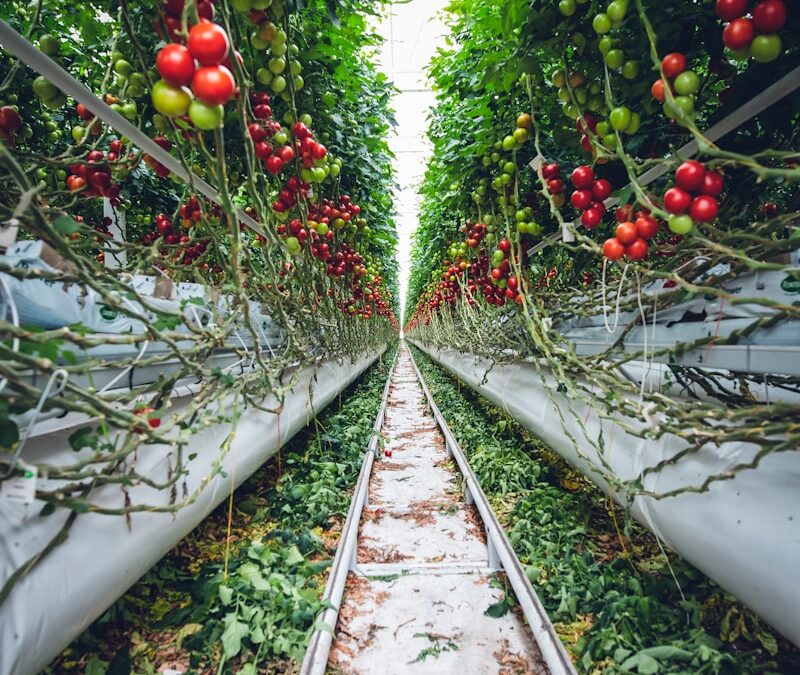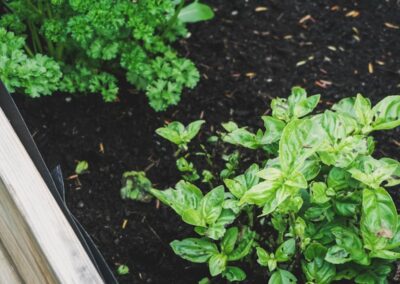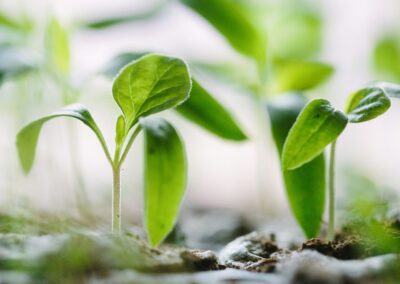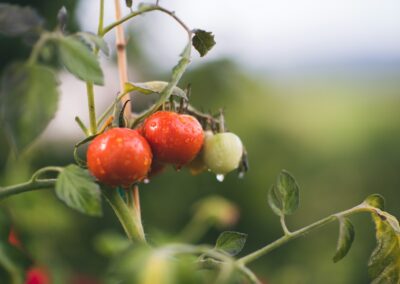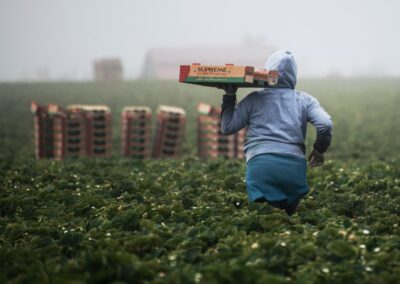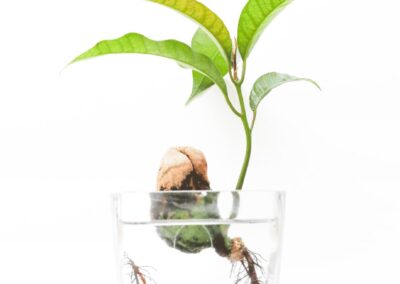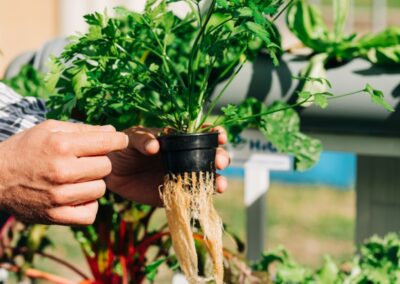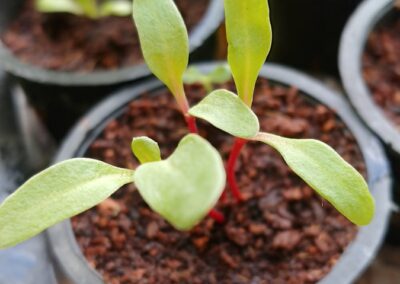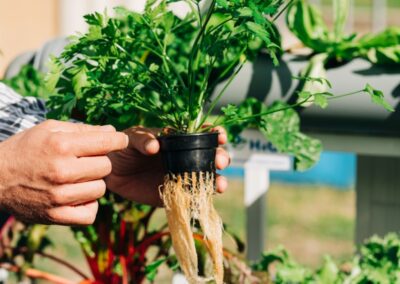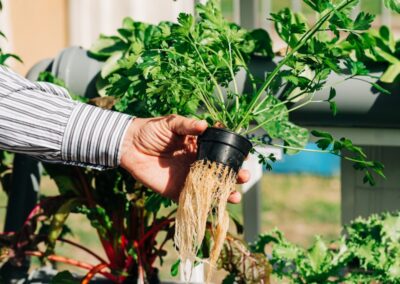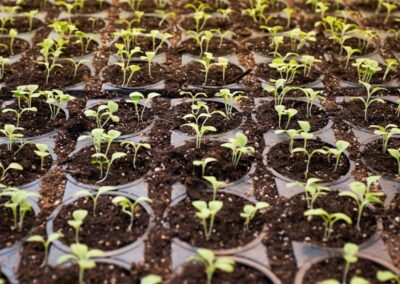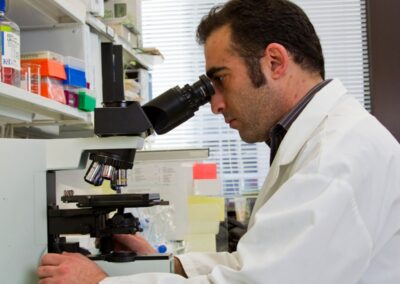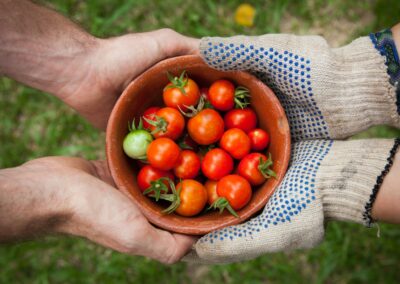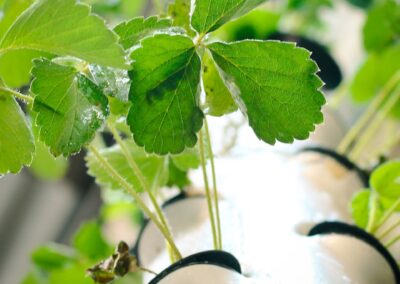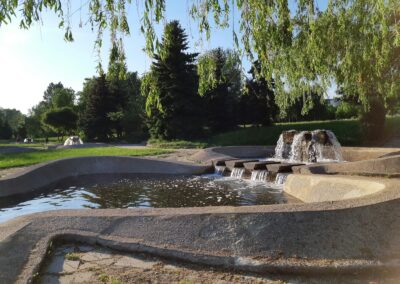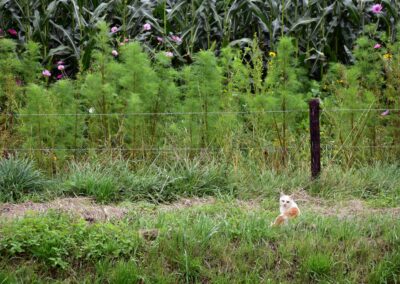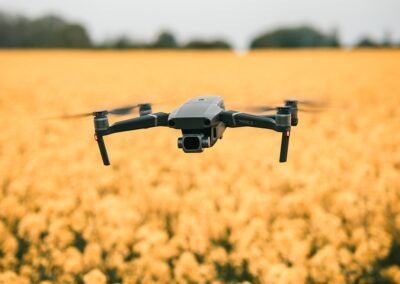Revolutionizing Urban Food Production with Hydroponics
Hydroponics in urban agriculture is transforming the way cities like Riyadh, Dubai, and other major urban centers in Saudi Arabia and the UAE approach food production. By growing crops in stacked layers or vertically inclined surfaces, hydroponics significantly reduces food miles—the distance food travels from production to consumer. This method not only lowers transportation costs but also reduces the carbon footprint associated with long-distance food distribution.
In regions where arid climates and limited arable land present challenges for traditional agriculture, hydroponics offers a sustainable solution. Cities like Riyadh and Dubai are increasingly adopting hydroponic systems to cultivate fresh produce locally. This shift supports local economies and enhances food security by ensuring a consistent supply of high-quality, nutritious food year-round. Furthermore, by minimizing the distance between farms and consumers, hydroponics helps preserve the freshness and nutritional value of the produce.
The integration of hydroponics in urban agriculture aligns with the strategic visions of Saudi Arabia and the UAE to promote sustainability and self-sufficiency. By embracing this innovative approach, these regions can reduce their reliance on imported food, thereby strengthening their resilience against global supply chain disruptions. The reduced need for transportation also translates to lower greenhouse gas emissions, contributing to the overall sustainability goals of these nations.
Supporting Local Food Production
The rise of hydroponics in urban agriculture is a testament to the growing importance of local food production. Hydroponic systems can be established in various urban settings, from rooftops and balconies to repurposed industrial buildings. This flexibility allows urban areas to maximize the use of available space, turning underutilized areas into productive farms.
In Dubai, the implementation of hydroponic farms in urban settings is gaining momentum. These farms are capable of producing a wide range of crops, from leafy greens to herbs and vegetables, all within the city limits. This proximity to consumers not only reduces food miles but also enhances the freshness and shelf life of the produce. Additionally, urban hydroponic farms create opportunities for community engagement and education, raising awareness about sustainable farming practices and the benefits of local food production.
Riyadh is also witnessing a surge in hydroponic initiatives. The city’s commitment to innovation and sustainability is reflected in the support for urban agriculture projects that incorporate advanced hydroponic techniques. By fostering a culture of local food production, Riyadh aims to improve food security and reduce its dependence on imported goods. This approach not only ensures a stable food supply but also promotes healthier eating habits by providing residents with easy access to fresh, locally grown produce.
Enhancing Sustainability through Efficient Resource Use
One of the most significant advantages of hydroponics in urban agriculture is its efficient use of resources. Traditional farming methods often require substantial amounts of water, fertilizers, and pesticides, which can have detrimental effects on the environment. In contrast, hydroponic systems use up to 90% less water than soil-based farming by recirculating and reusing water within a closed-loop system.
In Saudi Arabia and the UAE, where water scarcity is a pressing concern, the adoption of hydroponic systems offers a viable solution to sustainable food production. These systems precisely control nutrient delivery and environmental conditions, optimizing plant growth and minimizing waste. By reducing the need for chemical inputs, hydroponics also supports the production of cleaner, healthier food.
Furthermore, the use of renewable energy sources, such as solar and wind power, to operate hydroponic farms enhances their sustainability. Urban areas like Riyadh and Dubai are investing in green energy solutions to power their agricultural initiatives, reducing the overall carbon footprint of food production. This commitment to sustainable practices aligns with the broader environmental goals of these regions, contributing to a greener and more resilient future.
Integrating Advanced Technologies
The integration of advanced technologies such as Artificial Intelligence (AI) and the Internet of Things (IoT) is revolutionizing hydroponic farming. IoT sensors continuously monitor critical parameters like temperature, humidity, and nutrient levels, providing real-time data to optimize growing conditions. AI algorithms analyze this data to make predictive adjustments, ensuring that plants receive the ideal care for optimal growth.
In Riyadh and Dubai, the use of AI and IoT in hydroponic systems is enhancing productivity and efficiency. These technologies enable farmers to manage their operations remotely, making data-driven decisions that improve crop yields and resource use. The result is a more resilient and adaptive farming system capable of meeting the demands of urban populations.
Effective Communication and Change Management
The successful implementation of hydroponics in urban agriculture requires effective communication and robust change management strategies. Executive coaching services play a crucial role in guiding business leaders through the transition to advanced farming practices. By fostering a culture of innovation and continuous improvement, executive coaches help leaders navigate the complexities of integrating new technologies into their operations.
In regions like Saudi Arabia and the UAE, where traditional agricultural practices have long been the norm, change management is essential for gaining stakeholder buy-in and support. Leaders must communicate the benefits of hydroponics clearly, highlighting its potential to enhance food security, sustainability, and business success. By addressing concerns and fostering collaboration, they can drive the successful adoption of hydroponic systems in urban settings.
#Hydroponics #UrbanAgriculture #FoodSecurity #Sustainability #LocalFoodProduction #SaudiArabia #UAE #Riyadh #Dubai #ChangeManagement #ExecutiveCoaching #EffectiveCommunication #BusinessSuccess #ManagementConsulting #ArtificialIntelligence #Blockchain #TheMetaverse #GenerativeAI #LeadershipSkills #ManagementSkills #ProjectManagement

